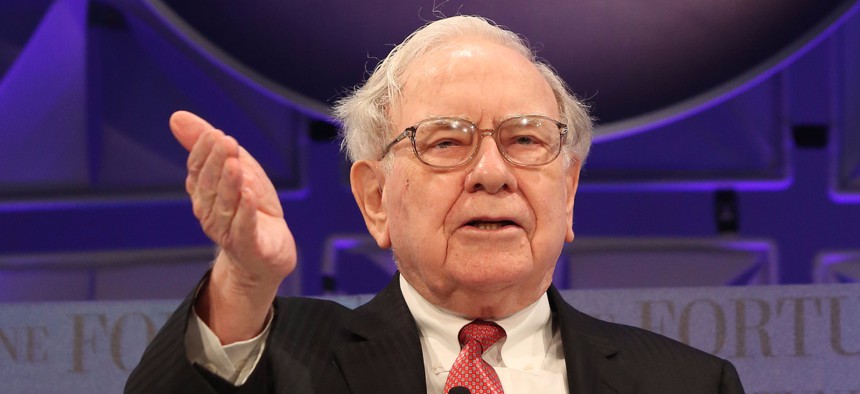
Krista Kennell / Shutterstock.com
Warren Buffett Gives His Employees 'Principles of Behavior' and Trusts Them to Do the Right Thing
Buffett said he's been able to avoid scandal by emphasizing the importance of Berkshire's reputation and his employees' role in safeguarding it.
Warren Buffett, the 86-year-old investor, is a folk hero as much for his plain-spoken wisdom as for his business prowess. He conceded that with 367,000 workers at the many huge corporations owned by his holding company, Berkshire Hathaway, some problems were inevitable. “As we sit here, somebody is doing something wrong at Berkshire,” he said at the Berkshire annual meeting in Omaha, Nebraska on May 6.
But among his core employees at headquarters, Buffett said he’s been able to avoid scandal by emphasizing the importance of Berkshire’s reputation and his employees’ role in safeguarding it.
“We count very heavily on principles of behavior rather than loads of rules,” he said. Indeed, in Berkshire’s code of conduct (pdf), it quotes from the man himself:
When in doubt, remember Warren Buffett’s rule of thumb: “… I want employees to ask themselves whether they are willing to have any contemplated act appear the next day on the front page of their local paper—to be read by their spouses, children and friends—with the reporting done by an informed and critical reporter.”
The code includes reassurances such as that any employee may report ethical violations “in confidence without fear of retaliation” and the always useful maxim: “If you are unsure of what to do in any situation, seek guidance before you act.”
Buffett isn’t the first boss to realize they get better results from trusting their workers and giving them more autonomy. The behavioral economist, Dan Ariely, has noted that “when you give people trust, people can flourish.” From Zappo’s ill-fated embrace of Holocracy to Warby Parker’s decision to let workers choose their assignments, employers are increasingly willing to cede control. Even traditional employers are relaxing rules and experimenting with flexible scheduling and unlimited vacations.
However, trust without the right corporate culture to support it can backfire, as Buffett discovered at Wells Fargo, where Berkshire Hathaway is the largest shareholder. Buffett said Wells Fargo employees had too much autonomy to achieve their cross selling targets, which resulted in a massive fake account scandal. Wells Fargo “incentivized the wrong type of behavior,” he said.
NEXT STORY: The Question Sally Yates Couldn't Answer






